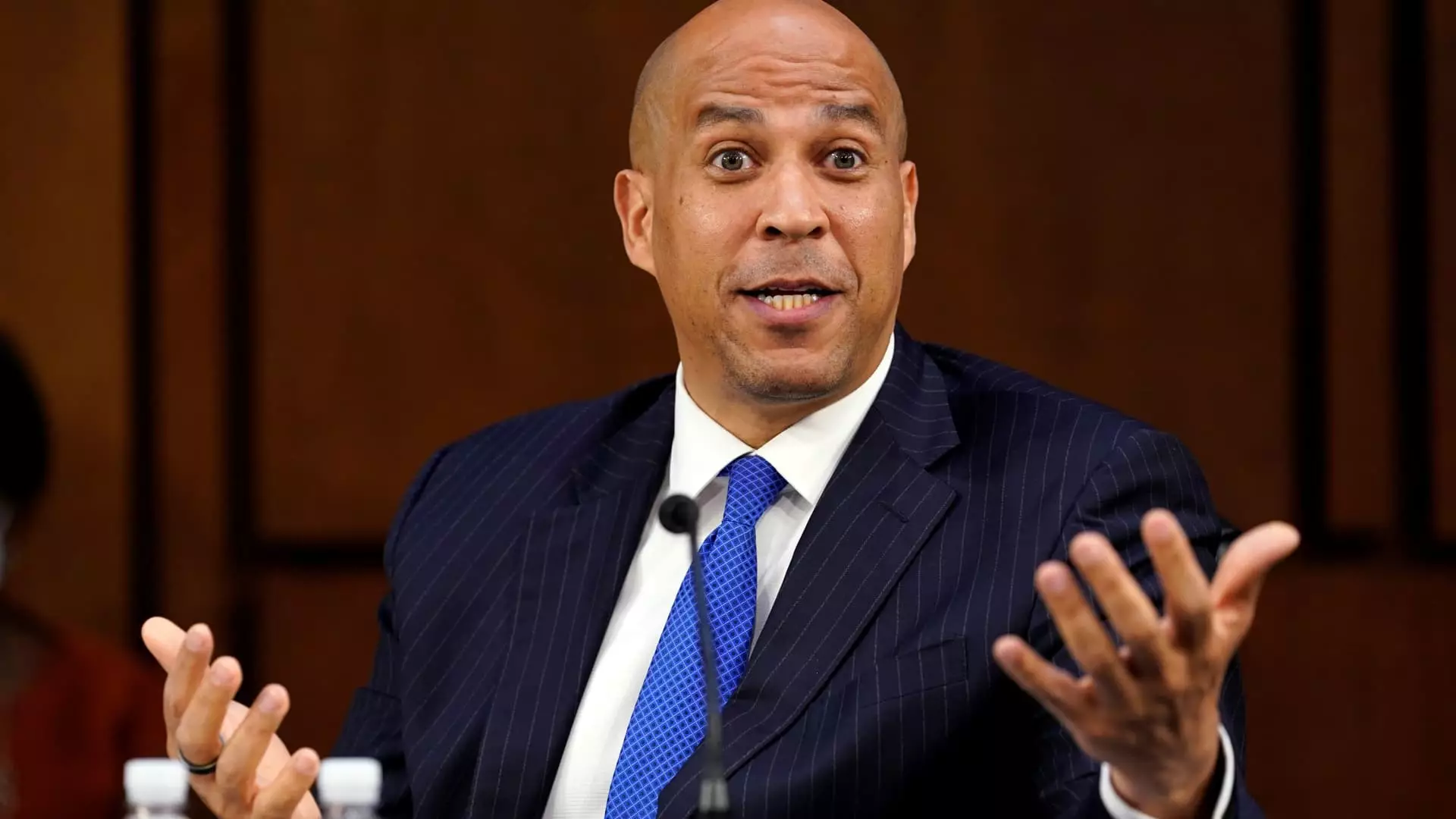In a bold move during a recent appearance on “Meet the Press,” Senator Cory Booker publicly rejected campaign contributions from tech titan Elon Musk, insisting that the urgency of the current political climate demands more than financial support. Instead, Booker advocated for substantive engagement from influential figures like Musk in the Democratic Party’s struggle against a GOP-backed spending bill he describes as “disastrous.” His comments reflect a growing frustration that extends far beyond mere electoral competitions; they touch on a larger conversation about the ethical implications of corporate influence in American politics.
Booker’s refusal to accept funds from Musk—someone often associated with both innovative progress and contentious political debates—positions him squarely within a democratic ethos that prioritizes accountability over convenience. By urging Musk to shift from his usual online provocations to active participation in political discourse, Booker highlights a crucial point: political engagement should transcend personal interests and venture into the collective societal good. The senator’s message resonates particularly because it challenges the notion that one can merely “buy in” to the political process without embracing the complexities that come with it.
The Consequences of Economic Policy Missteps
Booker’s alarm regarding the GOP’s legislative agenda is not unfounded. The proposed budget bill—which includes generous tax breaks for the wealthy and significant cuts to social programs like Medicaid—could have dire implications for countless working-class Americans. Booker’s assertion that this legislation would lead to soaring costs for the average American encapsulates a widespread concern among progressives: policies that cater exclusively to corporate interests undermine the very fabric of community welfare.
The ethical dilemma becomes pronounced when considering how such legislation not only affects pocketbooks but can exacerbate existing inequalities. The bill’s potential to eliminate federal taxes on tips and overtime pay, while simultaneously imposing more stringent work requirements for safety net programs, positions it as fundamentally at odds with the needs of low-income individuals. If Musk, regarded as a beacon of modern economic growth, wishes to align himself with progressive values, there is no better opportunity than opposing policies that threaten millions of livelihoods.
The Divisive Spectrum of Political Alliances
The recent tensions between Musk and former President Donald Trump exemplify a deeper schism within the conservative movement—one that places personal loyalty over policy principles. Musk’s criticism of Trump’s budget proposal as a “disgusting abomination” not only exposes fractures in the GOP’s ideological foundation but also signals a shifting landscape in corporate politics; it’s unclear whether alliances founded on mutual benefit can withstand the weight of ethical scrutiny in their outcomes.
Democrats like Representative Ro Khanna, who have floated ideas of integrating Musk into the Democratic fold, grapple with a larger dilemma: Can the party welcome figures whose past affiliations may clash with its current values? The question remains whether accepting contributions from someone like Musk—despite his revolutionary endeavors in technology and sustainable energy—might dilute the party’s core mission of social equity.
The Future of American Politics Is at Stake
The implications of Musk’s involvement in political donations extend beyond monetary influence into the realm of perception and power dynamics. As political figures grapple with the realities of corporate sponsorship, the risk of pandering to corporate interests at the expense of constituents grows ever more pressing. If the progressive bench hopes to reclaim the narrative from the grip of entrenched billionaires, they must advocate for genuine participation over mere endorsement.
Senator Booker’s remarks serve as a wake-up call that should not be overlooked. The fight against regressive legislation relies not only on political actors fighting the good fight but also on powerful individuals stepping into the fray with integrity. Musk must decide; he can utilize his platform to revert the political tide, harnessing his influence for broader societal benefit rather than remaining an aloof observer commenting from the sidelines.
The political landscape in America faces an uphill battle against corporate influence, but voices like Booker’s remind us that collective responsibility must take precedence over convenience. As the nation inches closer to critical elections, the demand for authentic civic engagement cannot be overstated. Only through concerted, grassroots effort—amplified by those in power—can the health of American democracy be restored.

Leave a Reply